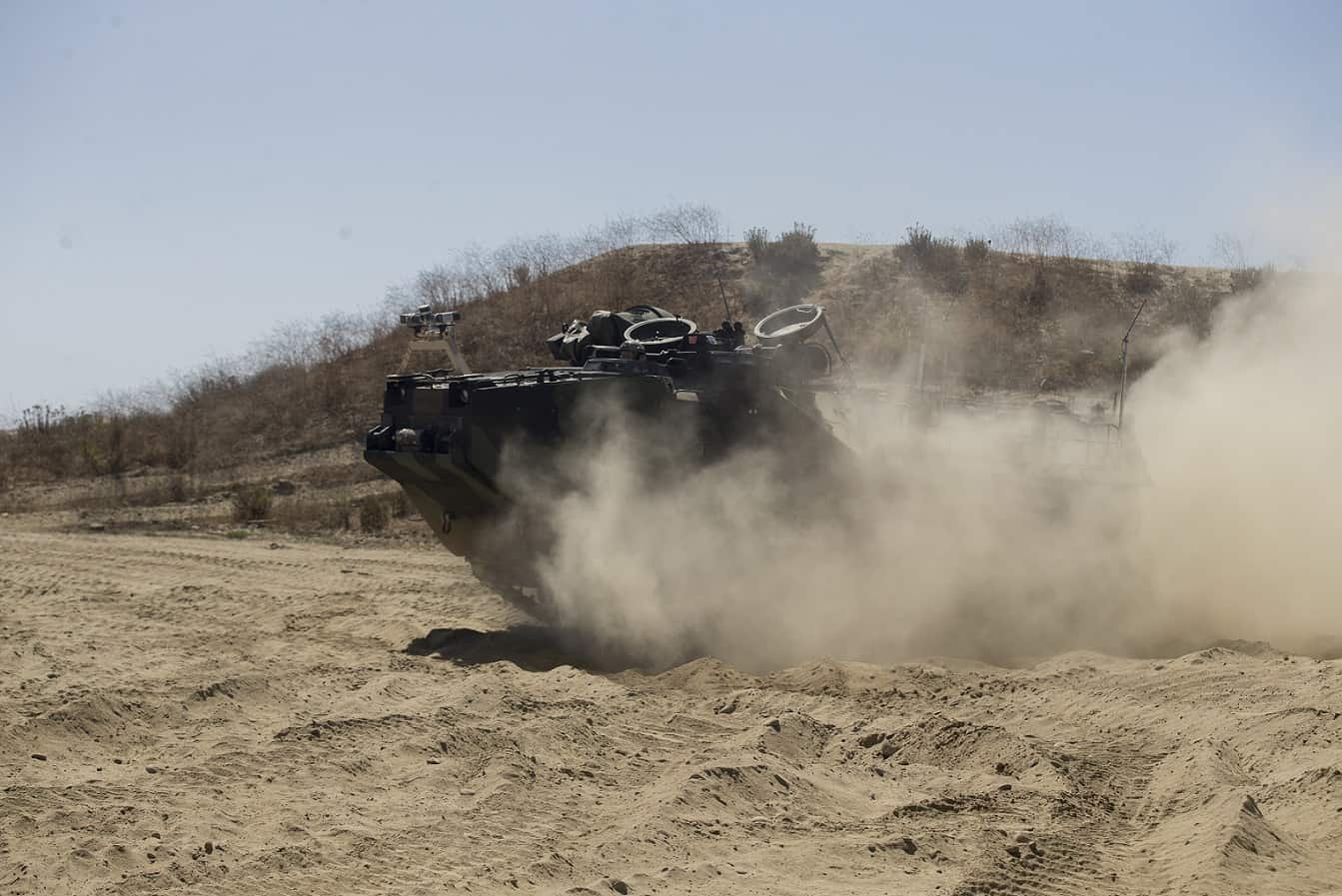U.S. Engineers hold tests of an autonomous variant of the Amphibious Assault Vehicle, according to a Marine Corps Base Camp Pendleton news release.
The Naval Information Warfare Center Pacific tests their autonomy software system on an Amphibious Assault Vehicle provided by the Amphibious Vehicle Testing Branch at the Del Mar Boat Basin on Marine Corps Base Camp Pendleton, California, Sept. 23, 2019.
The Assault Amphibious Vehicle is a fully tracked amphibious landing vehicle designed to land the surface assault elements of the landing force and their equipment in a single lift from assault shipping during amphibious operations to inland objectives and to conduct mechanized operations and related combat support in subsequent mechanized operations ashore. At sea, a turbocharged diesel engine provides AAV vehicles with a cruising speed of 7 knots and the ability to negotiate 10-foot plunging surfs heading either seaward or to shore. On land, the proven torsion bar suspension and BAE Systems signature “Big Foot” track makes for outstanding mobility on all terrains at a top speed of 45 mph.
AAVs have a very diverse set of capabilities. They can be used for counter-terrorism, mechanized assault, as well as humanitarian assistance operations.
The autonomy software system allows for AAV’s to be remotely guided or navigate themselves into different terrain, to create a route and clear the way for troops on the ground.
This testing has been going on for two years, and continues to be developed to assist Marines in accomplishing the mission.
